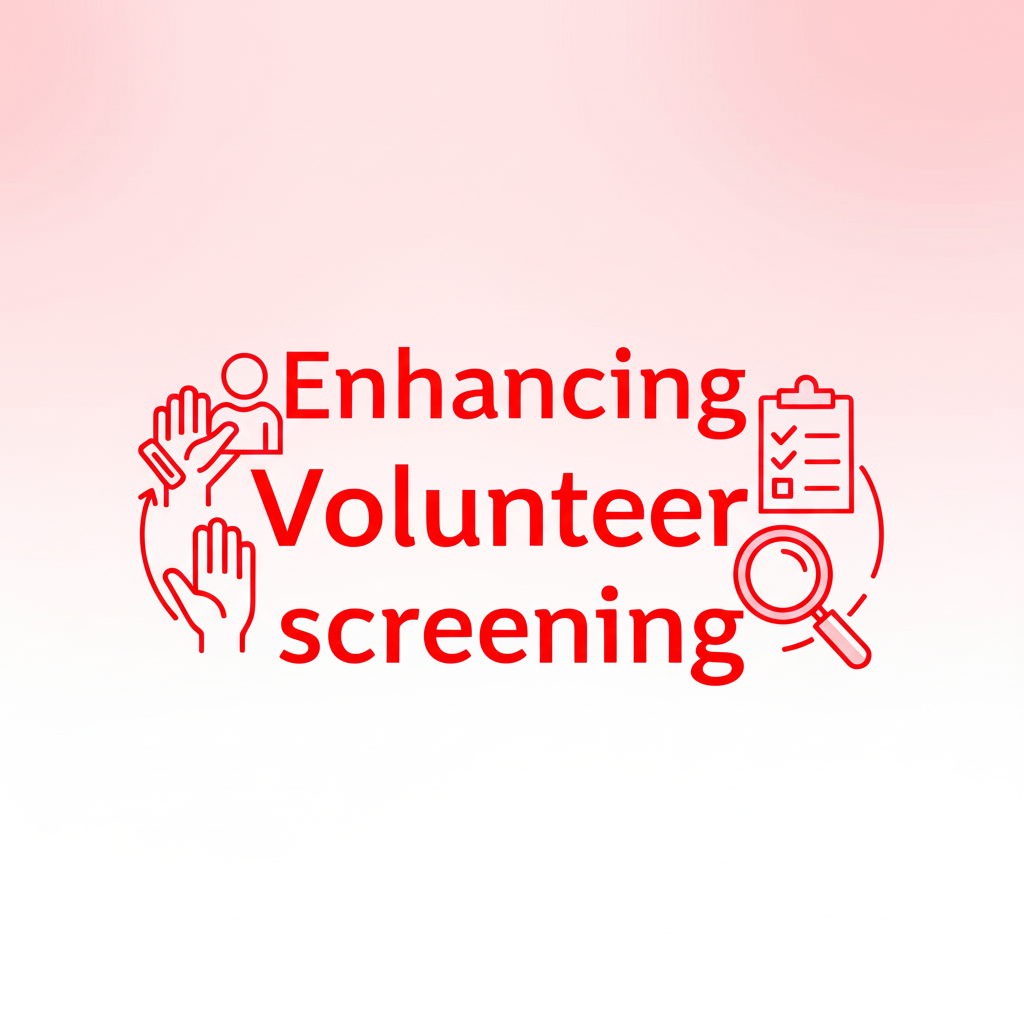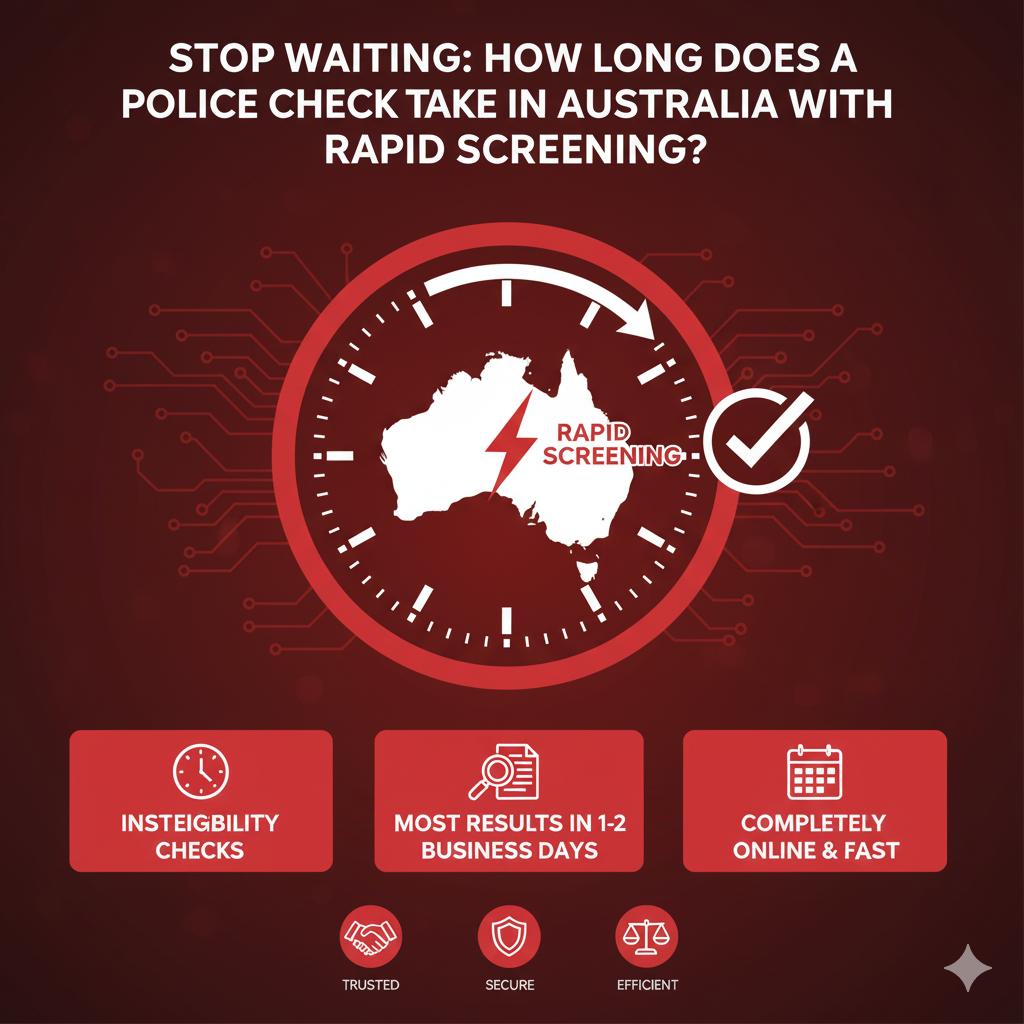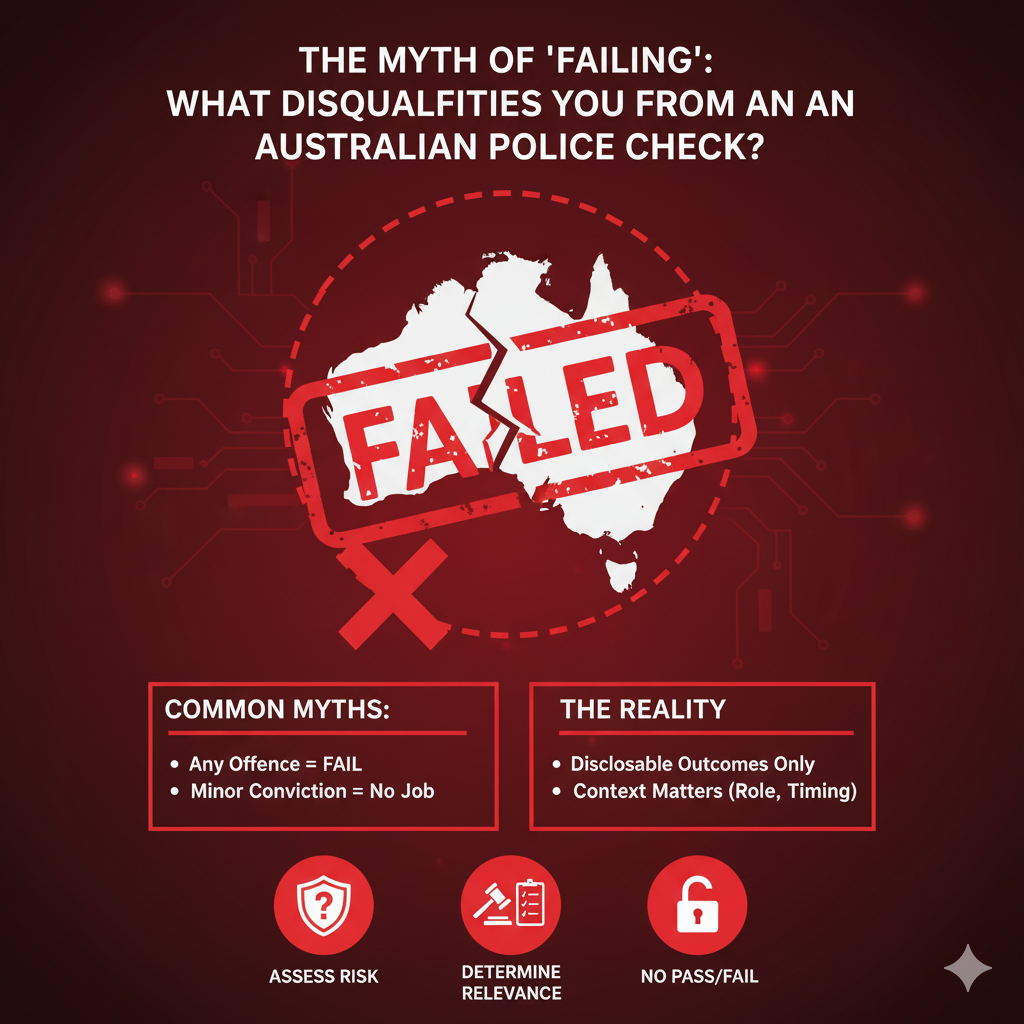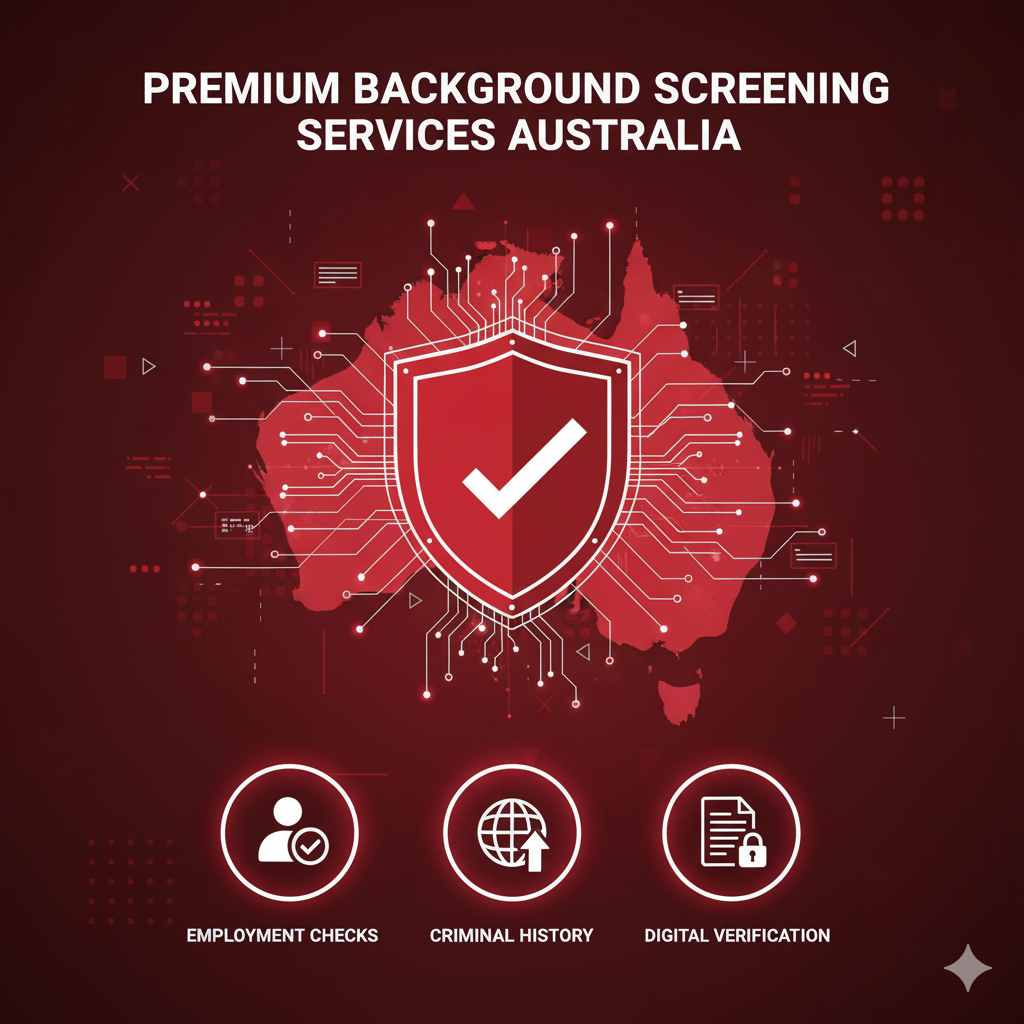Enhancing volunteer screening is the cornerstone of any successful nonprofit organization. However, these individuals offer their time and abilities because they are driven by passion and purpose. Charity organizations must combine the invaluable work of volunteers with their responsibility, especially when those volunteers work directly with underrepresented populations. Improving volunteer screening is a powerful way to ensure your nonprofit’s integrity, dependability, and efficiency.
The significance of volunteer testing, the possible consequences of skipping it, and how working with a reputable firm like Rapid Screening may safeguard your mission and the people you serve are all covered in this blog.
Why Volunteer Screening Matters in the Nonprofit Sector
Protecting the Most Vulnerable
Kids, seniors, refugees, and those going through trauma are among the sensitive groups that nonprofit organizations frequently support. It takes effort to give volunteers access to these groups. Furthermore, Enhancing volunteer screening significantly lowers the risk of injury by ensuring that only those with appropriate backgrounds are permitted to participate. Volunteer background checks typically include:
- National criminal history checks
- Working with Children Checks (WWCC)
- Reference verifications
- Employment history reviews
- Identity confirmation
By verifying these areas, nonprofits create a barrier against potential threats, offering peace of mind to both staff and service recipients.
Safeguarding Your Reputation
A nonprofit’s reputation is one of its most vital assets. One unfortunate incident involving an unscreened or underqualified volunteer can lead to:
- Loss of donor and public trust
- Media scrutiny
- Reduced funding opportunities
- Difficulty attracting future volunteers
Enhancing volunteer screening directly supports the organisation’s credibility. It demonstrates to stakeholders that your nonprofit upholds the highest standards of care and professionalism.
Meeting Legal and Regulatory Obligations
In Australia, specific regulations govern volunteer involvement in sensitive roles. For instance:
- Working with children or people with disability often requires legal screening.
- Volunteers handling financial transactions may need a financial background check.
- Some grants or insurance providers require formal screening protocols.
Rapid Screening understands these legal nuances and helps nonprofits remain compliant. Therefore, With our assistance, you can confidently show that every volunteer has been vetted according to your regulatory obligations.
Rapid Screening’s Role in Enhancing Volunteer Screening
Partnering with an experienced provider like Rapid Screening streamlines the screening process and ensures that nothing is overlooked. We offer tailored solutions that adapt to your organization’s size, scope, and sector.
Step 1: Define Role Specific Criteria
Not every volunteer position carries the same level of risk. For example:
- A food pantry helper may need only basic ID and criminal history checks.
- A mentor for at risk youth will require more extensive screening.
Enhancing volunteer screening starts with clarity. Rapid Screening helps your team develop role specific protocols, ensuring every check is appropriate to the level of involvement and access.
Step 2: Obtain Informed Consent
Screening volunteers involves collecting personal and often sensitive information. Our platform includes consent templates and digital workflows to:
- Ensure privacy compliance
- Collect legally valid permission
- Build transparency with your volunteers
Trust is a two way street, and engaging volunteers respectfully is central to building a lasting relationship.
Step 3: Conduct Comprehensive Checks
Rapid Screening’s volunteer screening services include:
- National police checks
- International background checks
- Identity and right to work verification
- Working With Children Checks (WWCC)
- NDIS Worker Screening Checks (if applicable)
All results are delivered securely via our user friendly dashboard, allowing your HR or volunteer coordinator to act quickly and decisively.
Step 4: Review and Respond to Results
Our system categorizes findings clearly, helping you assess red flags objectively. If a background check reveals issues:
- Assess the severity and relevance to the role
- Consider the individual’s explanation (if appropriate)
- Document the decision making process
Furthermore, this careful, consistent approach helps your organization maintain fairness while safeguarding its people and mission.
Step 5: Enable Ongoing Monitoring
Screening should not be a one time process. People’s circumstances can change. For long term or high risk volunteer roles, Rapid Screening offers continuous monitoring solutions, alerting you to:
- New criminal offences
- License or credential suspensions
- Updated eligibility for child related work
By enhancing volunteer screening with real time alerts, you maintain proactive risk management.
Key Benefits of Enhanced Volunteer Screening
Reduced Risk of Harm
Preventing potential misconduct before it happens is one of the most powerful outcomes of a strong screening program. It’s about proactively protecting everyone your clients, staff, volunteers, and community.
Simplified Hiring Procedures
By incorporating screening into your onboarding process, you may cut down on delays and enhance the user experience. The digital technologies from Rapid Screening make screening quick, safe, and simple.
Improved Volunteer Retention
Volunteers respect organizations that are transparent and professional. By treating screening as a meaningful step (not a formality), you create a culture of accountability and mutual respect which encourages long term commitment.
Enhanced Grant and Funding Eligibility
Evidence of risk prevention and safety precautions is often required by corporate sponsors and funding agencies. Enhancing volunteer screening shows your dedication to best practices and offers you an upper hand when submitting funding applications.
Common Misconceptions About Volunteer Screening
“We’re a small nonprofit, we don’t need to screen.”
Regardless of size, every organization carries responsibility for those it serves. Small nonprofits also require screening services because they are just as vulnerable to risk and may even face greater reputational impact from a single incident.
“It’s too expensive to screen every volunteer.”
A single negligence case can have significantly higher financial and reputational costs than screening. Rapid Screening makes sure you can receive the protection you require without going over budget by providing reasonably priced packages that are suited to nonprofit budgets.
“It will deter volunteers from submitting applications.”
Most people expect to undergo screening, especially when working with children or vulnerable populations. Morever, by communicating the purpose and process clearly, you create trust rather than resistance.
Rapid Screening: Your Partner in Volunteer Safety
At Rapid Screening, we understand the unique needs of nonprofit organizations. That’s why we’ve built services specifically designed to enhance volunteer screening without adding administrative burden.
Whether you operate locally or across multiple states, our team helps you:
- Stay compliant with national and state specific requirements
- Make informed volunteer decisions
- Build a strong, safe, and committed team
From one off background checks to ongoing monitoring solutions, we’re here to support your cause.
Best Practices for Enhancing Volunteer Screening
Create a Written Screening Policy
Document the types of checks required for each volunteer role and how decisions are made. A formal policy provides consistency and clarity for your staff and volunteers.
Train Your Team
Ensure HR managers and volunteer coordinators understand how to:
- Initiate background checks
- Interpret results
- Handle sensitive findings with care and confidentiality
Keep Records Secure
Use a secure digital platform (like Rapid Screening’s) to manage personal information in compliance with privacy regulations.
Review Screening Practices Regularly
Regulations change, as do the needs of your organization. However, Revisit your screening procedures annually to ensure they still align with your mission and legal obligations.
Conclusion: Building a Safe Future Through Screening
The foundation of nonprofit work is volunteers, who contribute vitality, passion, and commitment to worthwhile projects. However, that authority also carries responsibility. Enhancing volunteer screening is about fostering a secure, open, and prosperous environment for all parties involved, not about raising suspicions.
Your nonprofit may obtain efficient, legal, and adaptable screening options by collaborating with Rapid Screening. Moreover, by working together, we can guarantee that your volunteers are qualified to represent your cause and that they also share your values.
Don’t leave the destiny of your company up to chance. Start enhancing volunteer screening today with Rapid Screening.
Frequently Asked Questions (FAQs)
Q) Why is volunteer screening crucial for charity organizations, and what does it entail?
However, The process of assessing a volunteer’s background, including who they are, citations, and felonies earlier, is known as volunteer screening. Maintaining legal compliance, safeguarding the organization’s brand, and ensuring the protection of those in need are all critical for NGOs.
Q) What kind of background checks are part of a screening process?
Typical volunteer screening may include:
- National Police Checks
- Working With Children Checks (WWCC)
- NDIS Worker Screening (where applicable)
- Reference and employment history checks
- Right-to-work and identity verification
Enhancing volunteer screening means choosing the right checks based on each role’s risk level.
Q) Is volunteer screening legally required in Australia?
Yes, in many circumstances. Therefore, Jobs involving minors, people with impairments, or dealing with confidential information usually require background checks such as the WWCC or NDIS Worker Screening. Non-profit entities are required to abide by both state and federal legislation.
Q) How many times can I do volunteer screening?
The process of screening shouldn’t be done just once. Moreover, improving volunteer screening involves regular monitoring and rechecks, particularly for over time volunteers or individuals with high-trust duties, even though early checks are crucial.
Q) Will the screening procedure hinder volunteers?
Most reputable volunteers expect and support background checks. Moreover, when properly explained, the process builds trust and shows the organization values safety and professionalism. Clear communication ensures volunteers understand why screening is essential.
Q) What should we do if a background check reveals concerning information?
Evaluate the information based on:
- Relevance to the role
- Severity of the issue
- Recency of the event
In some cases, a conversation with the volunteer may clarify the context. Enhancing volunteer screening includes having fair, consistent decision-making protocols.
Q) What role does Rapid Screening play in background checks for volunteers?
For charitable organizations around Australia, Rapid Screening offers efficient, legal, and adaptable screening services. Our technologies are made to make improving volunteer screening easy, safe, and affordable, from quick criminal checks to continuous monitoring.




